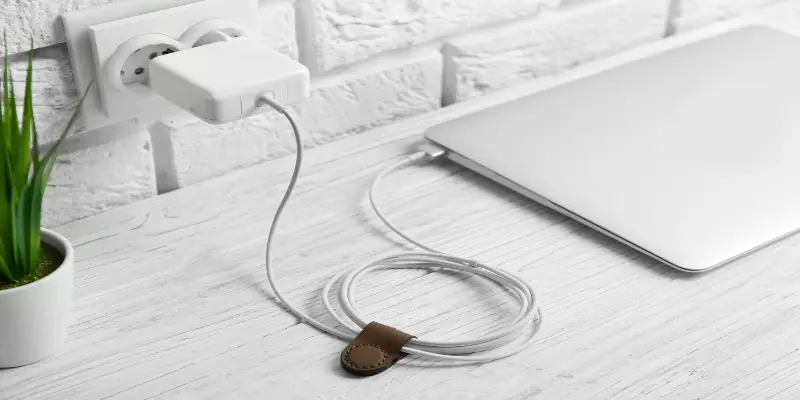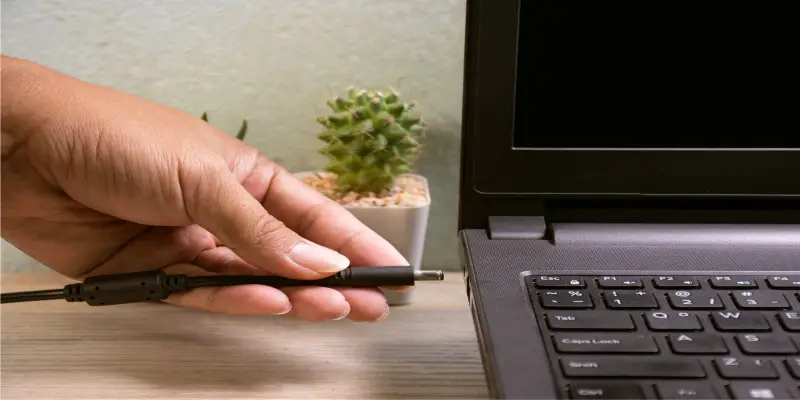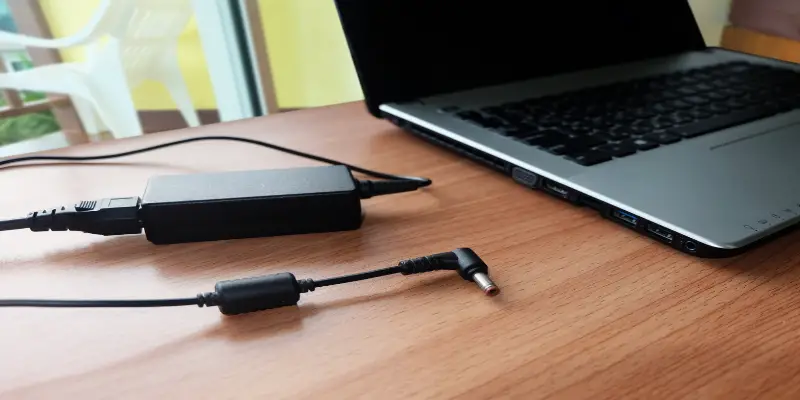Disclaimer: This post may contain affiliate links, meaning we get a small commission if you make a purchase through our links, at no cost to you. For more information, please visit our Disclaimer Page.
Most people do not know how long their laptop battery lasts when they first get it. It is highly advisable to understand the overall battery life of your laptop for you to figure out the estimated time to replace it. It also prevents any sudden disappointments and regrets that most laptop users experience just because their laptop battery has completely died out.
Most laptop batteries last anywhere from 2 to 5 years. The estimated limit for the laptop battery’s charge cycle is from 500 to 1000 cycles. But some laptop batteries have a higher (or lesser) estimation as well.
Of course, we always want to make sure that we will lessen any battery replacements for our laptops, or at least know if it is time to replace them soon.
In this article, you will learn the different factors that can shorten the laptop battery’s life. At the same time, you will also learn what is the best tip to do if you wish to prolong its overall life. In this way, you can become more knowledgeable in taking care of your laptop battery.
Table of Contents
How Long Should A Laptop Battery Last?
Typically, laptop batteries last for a very long time. Based on my experience in owning several laptops, the estimated timeframe of them all ranges around 2 to 5 hours.
It will last for a long or short time depending on how you treat its charging cycle. As also discussed earlier, around 1000 charging cycles is the overall limit of all laptop batteries.
Why is there a charging cycle for laptop batteries? Just like smartphone batteries, a laptop battery still has its limits and cannot provide unlimited charge cycles.
The reason behind this is because of the Lithium-ion present in batteries, which wears down when charged multiple times. The number of charge cycles reflects the years in a laptop battery’s lifespan.
The reason I want to teach you everything I have researched and tested in laptop batteries is that I don’t want you to experience a discharged battery.
That’s why I will provide you further information on how to take care of your laptop battery later on, as well as the best tip to maintain a long life for your laptop battery.
Is It Bad To Leave Your Laptop Plugged In All The Time?
It is alright for your laptop to be plugged in all the time only when the battery is out. Keep this in mind because I don’t want you to see any permanent damage to the battery, or worse, on the laptop itself.
Overcharging your laptop has a lot of risks that are unsafe not just for your laptop’s overall condition, but possibly for you as well.
As you can see, an overcharged laptop has a high chance to overheat and even explode. As the laptop gets overcharged, the battery saves too much electricity for it to heat up at a very high rate, which leads it to burst over time.
What’s worse here is that when you are using the laptop, it might damage your hands as it happens all of a sudden while you use it.
It can also damage your legs and some areas around it if you are charging it while resting it on your lap. Electrocution might also occur.
If the battery does not explode due to overcharging, the battery might get permanently damaged over time. Discharged batteries – those that have short lifespans or charges way too fast – are products of overcharging as well.
As the battery gets repeatedly overloaded as time passes, the battery itself becomes unable to keep its usual energy due to the damage caused by overloaded energy.
Gladly, the latest laptop models have vastly improved to avoid such issues.
Most of the newest models have a feature where the battery stops from receiving energy from the charger once the battery reaches 100%. In this way, forgetting to remove the battery will be a safe thing to do in the future!
It is understood that you do not need to go elsewhere that much, and you just want to use your laptop while at home like a PC. Therefore, there is no actual use on your battery. I will elaborate this below.
Should I Take Out The Battery And Use It On The Wire?
Taking out the battery and using it on the wire is the safest option if you do not want to use the battery in the meantime, yet need to operate the laptop.
This is good if you are staying at a place that provides electricity, or if you are simply at home. This helps you save your battery’s lifespan as you give it a rest, while at the same time able to enjoy your laptop’s features as a PC at the comfort of your home.
That is why you should take out the battery and plug the laptop directly if you don’t need to travel or use the laptop at a place with no electricity. It is a safety feature built-in laptops to save battery lifespan.
I sold my gaming PC years ago and resorted to a gaming laptop because of my need to travel as I work. When I got my first laptop, I never followed this tip until it became a huge and helpful lesson for me.
My first laptop was left charged the whole time when I was not yet traveling that much while working at home or the office with it. I thought it is safe to leave the battery like that, but after a few months of being overcharged, I noticed that it has a lifespan of 20 minutes only!
After a few months of resting it, it did not work anymore. That is the horror of leaving your laptop battery charged for a very long time.
NOTE: Remember to fully charge the battery laptop before completely removing it to prevent the laptop from getting discharged.
Ways How To Prolong Battery Life
Now that you know the best and safest decision to prolong your battery life, here are other ways to help you prolong it even further:
Save Cycles
As mentioned earlier, your laptop battery’s charging cycle goes down every time you plug that charger into your device.
To further explain this, note that laptop batteries have a limit on their charges. It ranges from 500 to 1000, depending on the model of the battery.
To measure the charge cycle, 1 cycle is equal to a 100% battery charge-up. Note that this means charging your battery by 50% only uses half of one cycle. But still, use it wisely!
To make sure that you are using the laptop battery properly while saving cycles efficiently, you have to know the techniques to save your battery power. Here are some useful tips to consider:
- Be sure to hibernate your laptop when you are not going to use it for a few minutes or hours.
- Close any apps that you are not using or those running in the background that you don’t need anymore.
- Turn on the Battery Saver mode of your laptop. It uses less power when the laptop is at 20%.
- Turn off syncing features on apps that you do not find worth ‘syncing’ anymore.
Your laptop’s RAM, SSD, and HDD work hard if you use too many resources on your laptop’s CPU, causing the laptop to exert more energy from the battery.
The following techniques can cause your device to use less battery energy to effectively save charging cycles for your battery.
Monitor Your Battery’s Condition
Much like apps on phones, there are programs built to scan the overall health condition of your laptop battery. These apps provide you a detailed report of the battery’s current status.
You can see how much energy it still has when being charged, as well as the remaining charging cycles.
There are also diagnostics found in the features of these apps, as well as battery-saving options.
There are a lot of them available to download, but be sure to pick the safest ones by searching for the top battery saver apps online. Take note that you might need to pay for some of them.
What’s also interesting about the battery saver app is that it can also detect the temperature of the laptop, which plays a huge factor in its overall condition. This will be further explained by the next tip below.
Keep The Battery Away From Hot Temperature
Heat plays a huge factor in damaging the battery, which eventually shortens its lifespan. An overcharged battery heats up too much, which also contributes to the permanent damage that overcharging can cause in the long term.
The reason this happens is that the electrochemical reactions caused by the Lithium-ion material found in the polymer batteries, speed up when hot.
This causes the battery to produce too much energy to the point where it damages the hardware as it overworks. If neglected enough, the battery can easily overheat no matter how cool the room is.
Just like a well-maintained PC, use the laptop as much as possible in a place that is not too hot. Avoid placing it near electronics that are turned on for a long time, and are potentially emitting heat.
You should also avoid placing the laptop in a room with warm temperatures for prolonged periods.
BONUS TIP: Is An Extra Battery Recommended?
It is very important to have an extra battery for your laptop at all times. Just think about instances where you might need to use your laptop for an extended period at a location where you cannot leave the laptop.
Take note that using your laptop while it’s being charged is not worth it because it will damage your battery in the long run.
Gladly, extra laptop batteries do not come too expensive, and each model has its exact battery for sale.
You can visit computer stores that order laptop batteries and other parts from their sources, or you can search online to do shop right away for one.
It is always better to keep an extra battery because you will never know that it might be extremely useful in emergencies.
Conclusion
The battery’s lifespan is not about the make and model; it is how you avoid misusing it. Expect that you can make it last even longer than 5 years if properly taken care of. Laptops are built to be portable, which is why your battery should be ready at all times.



